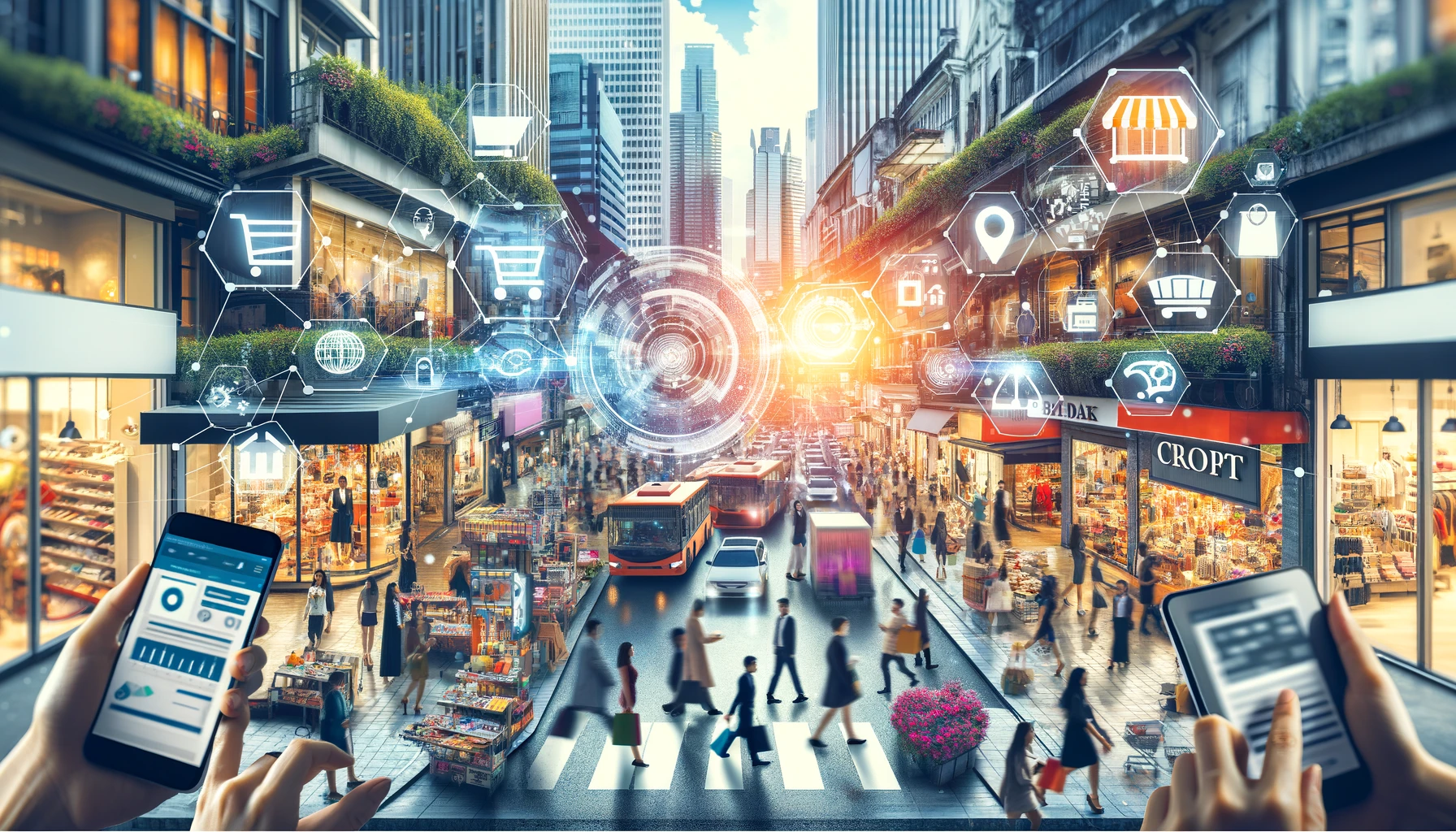A new study by research firm Forrester forecasts that e-commerce will grow from $4.4 trillion in 2023 to $6.8 trillion by 2028. This means online sales will capture 24% of global retail and be essential for brands, yet another sales channel will still prevail: physical stores. It is expected that $21.9 trillion of the $28.7 trillion in worldwide retail sales in 2028 will still happen offline, hinting at the everlasting importance of investing in physical retail.
In the US, online retail sales are expected to reach $1.6 trillion by 2028, accounting for 28% of total US retail sales. Canadian online retail sales will reach $83 billion, while Latin America’s top six countries – Brazil, Mexico, Argentina, Colombia, Peru, and Chile – will see online retail sales growing to $192 billion by 2028. In Western Europe, online retail sales are expected to grow from $508 billion in 2023 to $773 billion in 2028. “The growth of online marketplaces, social commerce, livestream selling, and direct-to-consumer commerce will accelerate global online retail sales growth over the next five years,” said Jitender Miglani, principal forecast analyst at Forrester.
Retail is undergoing significant shifts due to the evolving needs and behaviors of younger shoppers, expectations around seamless and unique shopping experiences, and the competitive landscape brought by new sales channels including social commerce. Weekly headlines show the difficulties faced by historic retailers like Macy’s, while many brands have filed for bankruptcy or are closing down stores, including Ted Baker in the U.S., Outdoor Voices, Rue21, The Body Shop, and many more. As much as 45,000 retail stores might close in the U.S. according to a report by UBS, with apparel and accessories, consumer electronics, and home furnishing retailers needing to shrink their footprints the most.
Despite store closures and the rise of online marketplaces, social commerce, online grocery, and click-and-collect services, physical retail will not become obsolete. In many ways, it is forced to face reinvention while still remaining the most prevalent retail channel worldwide. This highlights the importance of retailers having robust omnichannel strategies, which still isn’t a given for many of them, possibly explaining why many of them struggle to stay relevant with shoppers.
Indeed, lasting retailers in 2024 have understood the importance of being present across online and physical channels while offering seamless, enjoyable brand touchpoints to consumers that deliver instant value and engagement. Sephora is a great example of a retailer that has managed to evolve with its shoppers and cater to a younger audience and customers looking for a pleasant and personalized shopping experience. In addition to its high-performing online store and loyalty app that fit perfectly with the overall store ecosystem (click-and-collect services, loyalty points to redeem in store, etc.), the beauty retailer ensures it has well adapted its store footprint to reflect current beauty trends and carries exclusive brands that are widely popular. On top of this, it leverages its physical footprint to organize in-store brand beauty sessions and tutorials and carries yearly beauty events, two types of activations that make shoppers want to come to a Sephora location and enjoy their visit.
While headlines might focus on the constant growth of e-commerce, the underlying takeaway should not be on the importance of having a strong online presence only, but rather on taking a holistic approach to retail by creating online and physical brand experiences that complete each other and solidify a retailer’s ecosystem while providing the most seamless customer experience. Most retailers closing down stores or operations often have one thing in common: they fail to embed digital services as part of their store operations, while also failing to cater to younger consumers looking for unique shopping experiences that can be personalized, engaging, and relevant, thanks to exclusive merchandising and brand activations as well as a seamless path-to-purchase.


